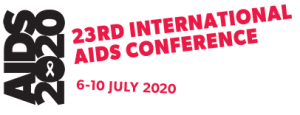Our greatest challenge and greatest opportunity
posted on 4/10/2019 12:51:00 AM
By Manuel Venegas, defeatHIV Community Advisory Board member, AIDS 2020 Conference Coordinating Committee Youth Representative
More questions than answers remain in the global fight against HIV and AIDS. However, one idea brings consensus from researchers, clinicians and advocates alike: while young people pose a tremendous challenge in the epidemic, they also offer our greatest opportunity for ending it. When equipped with the right information, skills and tools, adolescents and other young people are uniquely capable of halting the epidemic’s progress in its tracks.
We have miles to go before young people are on par with general progress in the HIV response. According to data from the United Nations Children’s Fund, 30% of all new HIV infections globally are estimated to occur among those aged 15 to 24. Currently, adolescents are the only age group seeing a drastic rise in AIDS-related deaths.
This priority population has historically been excluded from policies and practices, resulting in soaring diagnoses around the world. Adolescents are in dire need of the kind of innovative research that has been focused on adults and young children for decades. To this day, youth are left out of the majority of HIV and AIDS research due to ethical and legal complications and parental oversight. However, I’m involved with groups, such as defeatHIV, the AIDS Clinical Trials Group and the Center for AIDS Research at the University of Washington, that are working to optimize laboratory and clinical science for the adolescent population.
Progress is made when young people are put at the centre of the discussion. Adolescents are more likely than adults to adopt and maintain safe behaviours, especially when they are involved in programmatic design and implementation. Age-specific programmes that leverage information sharing, provision of youth-friendly health services and promotion of voluntary HIV counselling see results.
I found out that I was HIV positive when I was 20 years old, and I felt first-hand the effects of the lag in youth-related research and treatment. While current best practices would have instructed me to begin treatment immediately, antiquated science at that time led doctors to wait until my T cell count dropped below a certain level, ultimately delaying my treatment by 10 months. It is now common knowledge that the longer treatment is postponed, the harder it is to reverse the effects of the disease. We need to find a balance between relevant medical guidelines and the ability of adolescents and young adults to decide for themselves when they are ready to start treatment. Adequate research, education and communication is the only way to achieve such vital advancements.
As the Youth Representative on the International AIDS Society’s Conference Coordinating Committee, I am committed to working with my peers to ensure that our collective perspectives are represented at the 23rd International AIDS Conference (AIDS 2020). We have a global platform at our fingertips and this is a moment that we cannot let slip by. Not only do young people have a critical need for expert support, we also need strong mentorship. Before long, the “old guard” of AIDS research and activism will no longer be around. We must take advantage of their insight and wisdom, or else face that generation’s worth of knowledge lost to a new generation who needs it more than ever.
I am hopeful that scientific advancements will bring more favourable and functional methods of prevention and treatment to adolescents worldwide. If we play our cards right, there is still time for today’s youth to know an AIDS-free world. We are just not there yet.

